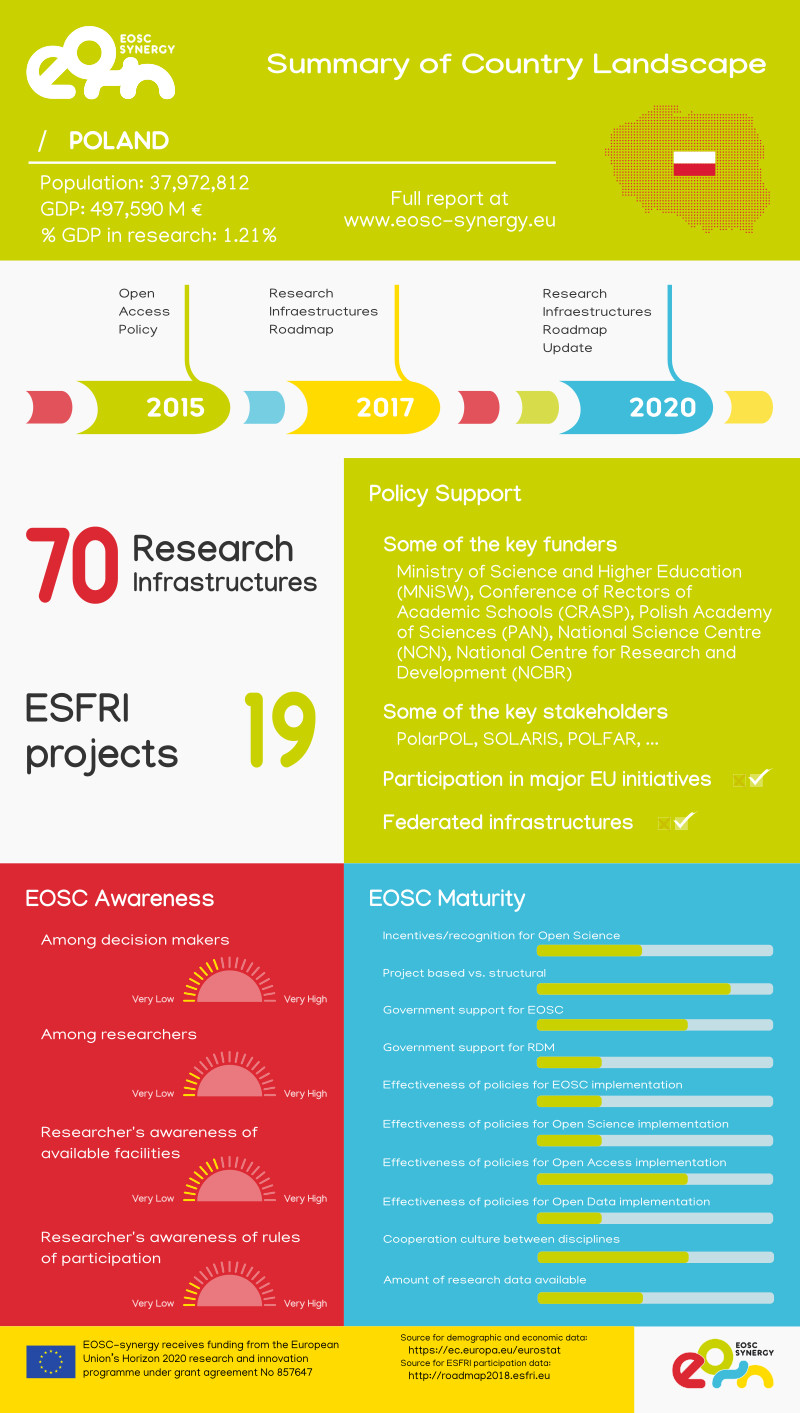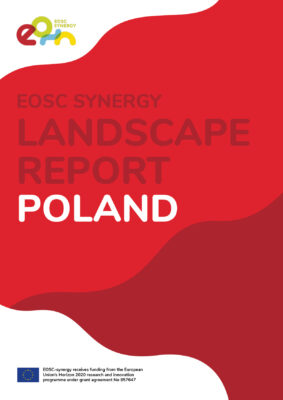

NATIONAL STRATEGY Open Science
Open access to scientific publications and open science are becoming increasingly important in the context of global science policy. Open access policies (open mandate) have been adopted by many leading universities, research institutions and research funding organisations. Open access is a mandatory requirement in the European programme Horizon 2020 funded by EU. Research data is also increasingly open and shared. The main benefits of the open access model for society include: better circulation of digital scientific content (publications, research data), improved quality of research (counteracting plagiarism through control by the scientific community), promotion of science in society, more efficient spending of public funds.
The activity of the Ministry of Science and Higher Education in supporting open models of scientific communication began in 2004 with the signing of the OECD Declaration on Access to Research Data From Public Funding by the Polish government. On 21 October 2012, the Minister of Science and Higher Education declared support for the idea of open access to the results of research financed from public funds.
On 23 October 2015, the Ministry of Science and Higher Education approved the open access policy contained in the document entitled “Directions for the development of open access to publications and results of scientific research in Poland”. The document is a recommendation concerning the introduction of open access by entities financing research (NSC, NCRD, MoSHE), scientific institutions, universities and publishers.
Due to the growing importance of knowledge, science and data for the development of society and economy, it is necessary to continue and intensify open access activities carried out by the Ministry of Science and Higher Education, research funding agencies, as well as universities and scientific entities and all scientists who carry out research projects, collect research data and publish scientific articles thanks to public funding. As a first step towards defining open access principles, each research organisation and university should adopt its own institutional open access policy.
Polish Road Map of Research Infrastructure
For nearly ten years the institution of the Polish Road Map of Research Infrastructure has been functioning in the space of Polish science. In short, it is a document that aims to present the actual potential of Polish science, highlight the possibilities and value of individual fields, as well as to search for and select the best, most valuable scientific projects based on the most excellent apparatus, which ultimately makes up the broadly understood research infrastructure.
It should be noted that the Polish Road Map of Research Infrastructure is a response to the recommendation on National road maps adopted by the European Strategy Forum on Research Infrastructures (ESFRI). In September 2009, the Ministry of Science and Higher Education launched a competition procedure for the selection of projects for the Polish Road Map, which received its first shape in 2011. Also approved was the definition of research infrastructure resulting from the definition adopted by ESFRI, which refers to a research centre on a national scale, including: a research equipment located in one place, cooperating devices of a smaller scale connected by an organizational structure (the so-called distributed infrastructure), research tools in the form of computer programs or other types of procedures and auxiliary devices – libraries, deposits, data banks, centres and computer networks. Since then, the Ministry of Science and Higher Education has treated the Polish Map of Research Infrastructure as a very important instrument that constitutes one of the starting points for the long-term policy on the development of strategic research infrastructure in Poland and the participation of Polish scientific teams in the most important European and international undertakings of this type.
What is extremely important, the Ministry adopted several assumptions for the functioning of the Polish Road Map. The project placed on the Map should aim at creating a research centre, in Poland or abroad, consolidating national scientific potential in a given field, involving the best scientific teams, and taking into account the principle of open access to research facilities, based on the criterion of scientific excellence.
On 12 April 2018 and 4 June 2019, the Minister of Science and Higher Education announced an open call for applications to include strategic research infrastructure projects into the Polish Road Map of Research Infrastructure and to carry out a periodic review of projects already included in the Road Map.
PIONIER network
Polish Optical Internet PIONIER – national broadband optical network of science PIONIER
The PIONIER network is a nationwide broadband optical network constituting the base for scientific research and development work in the field of computer science and telecommunications, computational sciences (grids, etc.), applications and services for the information society.
Built entirely with the funds of the National Committee for Scientific Research, at present it connects 21 centres of Municipal Academic Networks and 5 Centres of High Performance Computers using its own fiber optic lines. PIONIER is the first in Europe national academic network using its own fiber optics for data transmission using DWDM and 10 Gigabit Ethernet technology.
EOSC
In 2015 Poland has accepted an initial document that lays a foundation for a future national open access policy. The document, entitled “Directions of the development of open access to research publications and research results in Poland”, recommends a move towards open access to all relevant stakeholders. A national open access strategy is under preparation.
EOSC PARTICIPATION
The national participation in EOSC related projects include:
- EOSC-Synergy
- EOSC-hub
- EOSCpilot
- DEEP-Hybrid-DataCloud
- GÉANT
- INDIGO DataCloud
- XDC – eXtreme DataCloud
